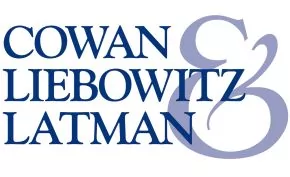Inaccurate information in a copyright application, though sometimes correctable, may end up costing a pretty penny.
The Law
Although a copyright registration is "not a condition of copyright protection," a copyright infringement action cannot be started until the Copyright Office either has issued a registration for the work or has refused to do so.
In 2008, the Copyright Act was amended to provide that a certificate of registration satisfies the registration requirement regardless of whether it contains inaccurate information, unless (1) the inaccurate information was included in the application with knowledge that it was inaccurate, and (2) the inaccuracy, if known, would have caused the Register of Copyrights to refuse registration. A copyright owner may apply for a supplementary registration to correct an error or to amplify information in a copyright registration.
An Unfortunate Case
Fiesta created textile designs and sold fabric to its customers to make into clothing.
It sued a competitor and its retail customers in the United States District Court for the Central District of California claiming they copied one of its copyrighted fabric designs and used it to manufacture a blouse.

A group of related works may be registered together for a single fee under some circumstances, but published works may not be included with unpublished works. Fiesta had applied to register the copyright in this design as part of a group of thirty-three fabric designs, certifying that none of them had been published.
In fact, Fiesta had previously sold about 190 yards of the fabric in issue as samples to "a limited group of existing and potential customers for the limited purpose of securing full production contracts." Fiesta's president testified that he knew of these sales but did not consider sampling to be a publication.
Both parties moved for summary judgment. The Court decided that Fiesta's identification of this design as unpublished was inaccurate. It then asked the Copyright Office whether this inaccuracy would have caused it to refuse registration. Although the Copyright Office's general practice is to give an applicant forty-five days to correct an error of which the Office is aware, this one was not timely corrected. The Office said it would have refused registration if the error had been known.
Accordingly, the District Court declared Fiesta's copyright registration to be invalid as to this design, dismissed its claims with prejudice, and awarded attorneys fees and costs to the victorious defendants in the amount of over $120,000.
Fiesta appealed. Meanwhile, it had obtained a separate registration for this design as a published work. The District Court denied Fiesta's request to add this new registration to its complaint. Fiesta did not appeal this ruling, but rather filed a second infringement action based on the new registration, which the parties agreed to stay pending a decision on Fiesta's appeal.
The Ninth Circuit affirmed the District Court's decision in all respects. Fiesta knew the information in its application was inaccurate and this was enough even in the absence of fraudulent intent. Moreover, Fiesta could not just remove the published designs from its copyright registration, because then the registration on which it had sued would not have covered the allegedly infringed design.
Fiesta's president's belief that a sample sale did not count as a "publication" was characterized by the District Court as "ignorance of the law," which is "no excuse." As a result, Fiesta's inaccurate copyright application--and its refusal simply to accept this error and move on--resulted in Fiesta's incurring its own legal fees and costs for the trial and appeal as well as the defendant's legal fees and costs. Moreover, the parties never even reached the substantive issue as to whether there was infringement, which will require another proceeding based on Fiesta's second copyright registration.
Takeaway
You should use care to be sure that your copyright application is factually accurate. Although some inadvertent errors or good faith mistakes can be corrected in various ways, others cannot be corrected. When you find an error, you should take prompt steps to correct it.
Gold Value International Textile, Inc. d.b.a. Fiesta Fabric v. Sanctuary Clothing, LLC et al., No. 17-55818, 2019 WL 2347390 (9th Cir. Jun. 4, 2019).
06.25.2019
The content of this article is intended to provide a general guide to the subject matter. Specialist advice should be sought about your specific circumstances.

